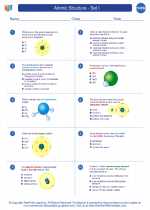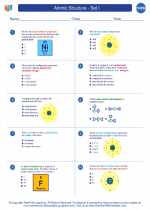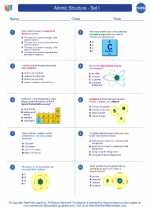Volcanic Eruptions
Volcanic eruptions are natural events that occur when magma and gas are discharged from a volcanic vent. These eruptions can be highly explosive, releasing hot lava, ash, and gases into the atmosphere. Understanding the causes and effects of volcanic eruptions is essential for studying the Earth's geology and mitigating the potential hazards associated with volcanic activity.
Causes of Volcanic Eruptions
Volcanic eruptions result from the movement and pressure of magma beneath the Earth's surface. The main causes of volcanic eruptions include:
- Subduction Zone Volcanism: This occurs at convergent plate boundaries where one tectonic plate is forced beneath another, leading to the melting of rock and the formation of magma.
- Hot Spot Volcanism: Hot spots are areas of high volcanic activity that result from a plume of hot mantle material rising through the Earth's crust, creating magma chambers and volcanic eruptions.
- Mid-Ocean Ridge Volcanism: Volcanic activity occurs along underwater mountain ranges where tectonic plates are moving apart, allowing magma to rise and form new oceanic crust.
Types of Volcanic Eruptions
There are several types of volcanic eruptions, each characterized by different behaviors and characteristics:
- Effusive Eruptions: These eruptions involve the relatively gentle release of lava, resulting in the formation of shield volcanoes and lava flows.
- Explosive Eruptions: These eruptions are highly energetic and can produce pyroclastic flows, ash clouds, and volcanic bombs. They often occur at stratovolcanoes and calderas.
- Phreatic Eruptions: These eruptions result from the interaction of water with magma, leading to steam-driven explosions and the ejection of ash and rock fragments.
Effects of Volcanic Eruptions
Volcanic eruptions can have significant impacts on the environment, landscape, and human populations. The effects of volcanic eruptions include:
- Lava Flows: The flow of molten lava can destroy infrastructure and vegetation in its path, altering the landscape.
- Ashfall: Volcanic ash can blanket large areas, affecting air quality, agriculture, and transportation systems.
- Gas Emissions: Volcanic gases, such as sulfur dioxide, can contribute to air pollution and have health implications for humans and animals.
- Climate Impact: Large eruptions can release significant amounts of ash and gas into the atmosphere, leading to global cooling and changes in weather patterns.
Study Guide
To effectively study volcanic eruptions, consider the following key points:
- Understand the geological processes that lead to the formation of magma and the factors influencing its movement towards the Earth's surface.
- Learn about the different types of volcanic eruptions and their characteristics, including effusive, explosive, and phreatic eruptions.
- Explore the impacts of volcanic eruptions on the environment, human societies, and global climate patterns.
- Examine case studies of notable volcanic eruptions throughout history and their effects on local and global scales.
- Investigate the methods and technologies used to monitor and predict volcanic activity, as well as the strategies for mitigating volcanic hazards.
By thoroughly understanding the causes, types, and effects of volcanic eruptions, you can gain valuable insights into the dynamic processes that shape the Earth's surface and the potential risks associated with volcanic activity.
[Volcanic Eruptions] Related Worksheets and Study Guides:
.◂Chemistry Worksheets and Study Guides High School. Atomic Structure - Set I

 Worksheet/Answer key
Worksheet/Answer key
 Worksheet/Answer key
Worksheet/Answer key
